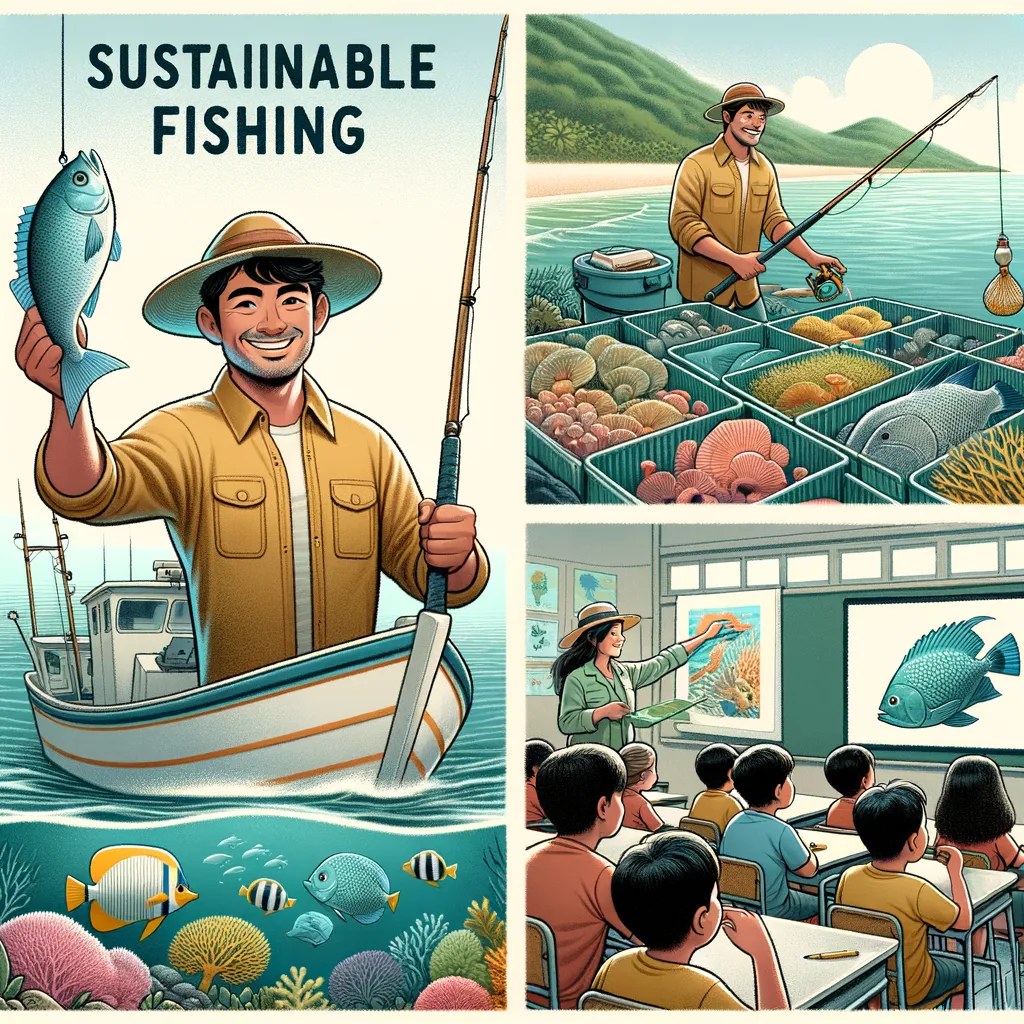A Guide to Sustainable Fishing Practices for Parents
Welcome, eco-conscious parents! As we dive into the world of sustainable fishing practices, we’re ecstatic to share insights and tips to help your family contribute towards a healthier planet. Embarking on this journey not only teaches our children about environmental stewardship but also ensures that the joys of fishing can be passed down through generations. Ready to cast your line into the waters of sustainability? Let’s get started!
Why Sustainable Fishing Matters
In today’s world, where the health of our oceans is more crucial than ever, understanding and practicing sustainable fishing is vital. Overfishing, habitat destruction, and other harmful practices are jeopardizing aquatic life and ecosystems at an alarming rate. By choosing sustainable fishing, we play a part in preserving marine biodiversity, supporting fish populations, and ensuring that our children and future generations can enjoy the abundance of the sea.
Understanding Sustainable Fishing
Sustainable fishing is about more than just how many fish are caught; it encompasses a mindful approach to fishing that respects the marine environment and its inhabitants. It involves adhering to regulations designed to maintain fish populations, using gear that minimizes damage to underwater ecosystems, and choosing to support fisheries and products that prioritize sustainability. With every decision, we have the power to influence the market and promote environmentally friendly fishing practices.
1. Educate Your Family About Ocean Biodiversity
Start with a splash by educating your little ones about the wonders of the ocean. There’s no better way to foster a love for the environment than learning about the diverse species that live beneath the waves. Interactive books, documentaries, and visits to aquariums can serve as engaging tools to spark curiosity and appreciation for marine life.
2. Choose Sustainable Seafood
One of the simplest actions you can take is to make informed choices at the grocery store or when dining out. Look for seafood that carries certifications like the Marine Stewardship Council (MSC) or Aquaculture Stewardship Council (ASC), which indicate sustainable sourcing. There are also handy guides and apps available that can help you make eco-friendly choices, ensuring you’re supporting fisheries that practice responsible fishing.
3. Practice Catch and Release
If your family enjoys fishing, adopting catch and release methods can significantly reduce the impact on fish populations and their habitats. This practice allows fish to continue their life cycle, contributing to the ecosystem and maintaining species diversity. Be sure to use barbless hooks and handle fish with care to minimize stress and injury.
As we venture further into the realm of sustainable fishing, remember, it’s about making conscious choices that benefit our blue planet. From choosing the right seafood to understanding the importance of marine conservation, every step we take is a ripple in the ocean of change. As parents, we have the unique opportunity to instill these values in our children, ensuring they grow up with a respect and appreciation for the natural world around them.
Stay tuned as we delve deeper into sustainable fishing practices, providing you with actionable tips and knowledge to make your family’s fishing adventures as eco-friendly as possible. Together, we can make a difference, one small wave at a time.
This structure introduces the topic engagingly and informatively, encouraging continued reading. Each section is designed to build on the reader’s understanding of sustainable fishing, starting with the why, moving onto the how, and concluding with actionable steps families can take. The welcoming tone and practical tips make it accessible and useful for the target audience of eco-conscious parents wanting to teach their children about sustainable practices.
https://en.wikipedia.org/wiki/Camping

A Guide to Sustainable Fishing Practices for Parents
Welcome, eco-conscious parents! As we dive into the world of sustainable fishing practices, we’re ecstatic to share insights and tips to help your family contribute towards a healthier planet. Embarking on this journey not only teaches our children about environmental stewardship but also ensures that the joys of fishing can be passed down through generations. Ready to cast your line into the waters of sustainability? Let’s get started!
Why Sustainable Fishing Matters
In today’s world, where the health of our oceans is more crucial than ever, understanding and practicing sustainable fishing is vital. Overfishing, habitat destruction, and other harmful practices are jeopardizing aquatic life and ecosystems at an alarming rate. By choosing sustainable fishing, we play a part in preserving marine biodiversity, supporting fish populations, and ensuring that our children and future generations can enjoy the abundance of the sea.
Understanding Sustainable Fishing
Sustainable fishing is about more than just how many fish are caught; it encompasses a mindful approach to fishing that respects the marine environment and its inhabitants. It involves adhering to regulations designed to maintain fish populations, using gear that minimizes damage to underwater ecosystems, and choosing to support fisheries and products that prioritize sustainability. With every decision, we have the power to influence the market and promote environmentally friendly fishing practices.
Educate Your Family About Ocean Biodiversity
Start with a splash by educating your little ones about the wonders of the ocean. There’s no better way to foster a love for the environment than learning about the diverse species that live beneath the waves. Interactive books, documentaries, and visits to aquariums can serve as engaging tools to spark curiosity and appreciation for marine life.
Choose Sustainable Seafood
One of the simplest actions you can take is to make informed choices at the grocery store or when dining out. Look for seafood that carries certifications like the Marine Stewardship Council (MSC) or Aquaculture Stewardship Council (ASC), which indicate sustainable sourcing. There are also handy guides and apps available that can help you make eco-friendly choices, ensuring you’re supporting fisheries that practice responsible fishing.
Practice Catch and Release
If your family enjoys fishing, adopting catch and release methods can significantly reduce the impact on fish populations and their habitats. This practice allows fish to continue their life cycle, contributing to the ecosystem and maintaining species diversity. Be sure to use barbless hooks and handle fish with care to minimize stress and injury.
As we venture further into the realm of sustainable fishing, remember, it’s about making conscious choices that benefit our blue planet. From choosing the right seafood to understanding the importance of marine conservation, every step we take is a ripple in the ocean of change. As parents, we have the unique opportunity to instill these values in our children, ensuring they grow up with a respect and appreciation for the natural world around them.
Stay tuned as we delve deeper into sustainable fishing practices, providing you with actionable tips and knowledge to make your family’s fishing adventures as eco-friendly as possible. Together, we can make a difference, one small wave at a time.
Camp until your heart contents. Camping Information
Disclaimer
The articles available via our website provide general information only and we strongly urge readers to exercise caution and conduct their own thorough research and fact-checking. The information presented should not be taken as absolute truth, and, to the maximum extent permitted by law, we will not be held liable for any inaccuracies or errors in the content. It is essential for individuals to independently verify and validate the information before making any decisions or taking any actions based on the articles.




